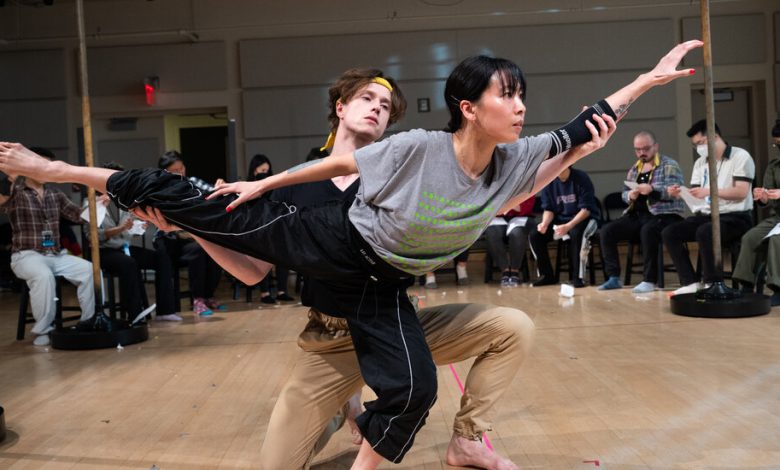Channeling the Pain of Chinese Immigrants, in Music and Verse

In “Angel Island,” a staged oratorio about the anguish and isolation of Chinese detainees at Angel Island Immigration Station in California, a choir recites a poem about tyranny and misfortune.
“Like a stray dog forced into confinement, like a pig trapped in a bamboo cage, our spirits are lost in this wintry prison,” they sing in Chinese. “We are worse than horses and cattle. Our tears shed on an icy day.”
The poem is one of more than 200 inscribed on barrack walls at Angel Island in San Francisco Bay, where hundreds of thousands of people, mostly from China and Japan, were questioned and held — sometimes for months or even years — as they sought entry to the United States in the first part of the 20th century. Their harrowing accounts form the emotional core of “Angel Island,” by the Chinese-born composer Huang Ruo, which has its New York premiere this month at the Brooklyn Academy of Music, in a staging that is part of the opera and theater festival Prototype.
The production, directed by Matthew Ozawa and featuring the Del Sol Quartet and members of the Choir of Trinity Wall Street, shines light on life at Angel Island, the port of entry for many Asian immigrants from 1910 to 1940, whose punishing atmosphere stood in contrast to the more welcoming spirit of Ellis Island.
We are having trouble retrieving the article content.
Please enable JavaScript in your browser settings.
Thank you for your patience while we verify access. If you are in Reader mode please exit and log into your Times account, or subscribe for all of The Times.
Thank you for your patience while we verify access.
Already a subscriber? Log in.
Want all of The Times? Subscribe.